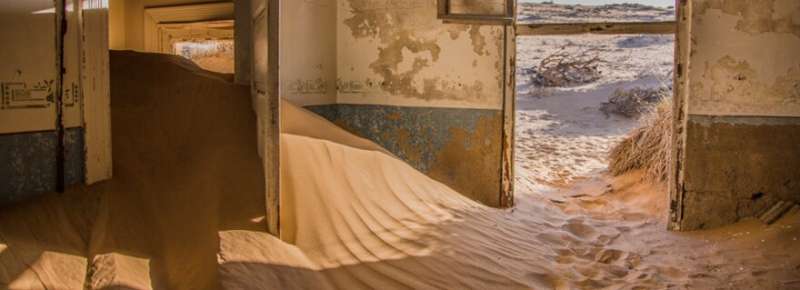The impact of climate change on groups of people

The socio-economic effects of climate change often do not receive enough attention. At the EuroScience Open Forum (ESOF) a group of researchers will provide more insight. How does climate change affect whether people work together or conversely end up as opponents? And what can we learn from societies from prehistory?
One example of groups ending up as opponents in part because of climate change is the Syrian civil war. "The ten years before this war broke out were the driest in the Middle East," says Professor of Social and Organizational Psychology Carsten de Dreu. "Food prices increased drastically, particularly for grain, bread and the like. This made it increasingly difficult for the poorer population in Syrian cities and they rebelled against the government. That was crushed and the rest is history."
Intervention
According to De Dreu this example shows how climate change can have an effect on polarization, conflict and violence between groups. He believes it is important to pay attention to this, alongside the debate on global warming, rising sea levels and energy transition. "We have to think of strategies to counteract the socio-economic effects of climate change. How, for instance, is the food supply organized around the globe and where are the bottlenecks in the system? By thinking more about these kinds of things, we may be able to intervene early and prevent conflicts and tensions between groups."
Past
Issues like these can't be resolved from one discipline, which is why David Fontijn, Professor of Archaeology from Early Europe, is speaking in the same session as De Dreu. He knows how societies dealt with climate change in the distant past. There are also examples of where things went terribly wrong. Fontijn: "Some societies were very rigid and remained stuck in certain patterns. Wars and conflicts broke out and people had to flee. But there are also examples of people being amazingly successful in a changing environment."
Alternatives
In the distant past, people were able to continue in a wet environment because they no longer focused solely on certain crops. "This shows that climate change doesn't only lead to war and misery. We have to look at the solutions they found in the past and what we can learn from these."
Using alternative materials, for example, says Fontijn. "Because it's modern, houses in India are now built of concrete but the heat drives you crazy, when houses have been built from mud since prehistoric times. They're perfect because they breathe. If it's cold outside, it's warm inside and vice versa. We really can learn from this."
In 2022 Leiden is hosting ESOF: the largest multidisciplinary science conference in Europe. The tenth edition will be held in Leiden from 13 to 16 July, in close collaboration with EuroScience from Strasbourg. ESOF2022 has seven themes: Sustainable environment, Cultural Identities and Societal Transformation, Space for science, Healthy societies, Freedom and responsibility of science, Science and Business, and Sustainable Academic Careers.
Provided by Leiden University




















